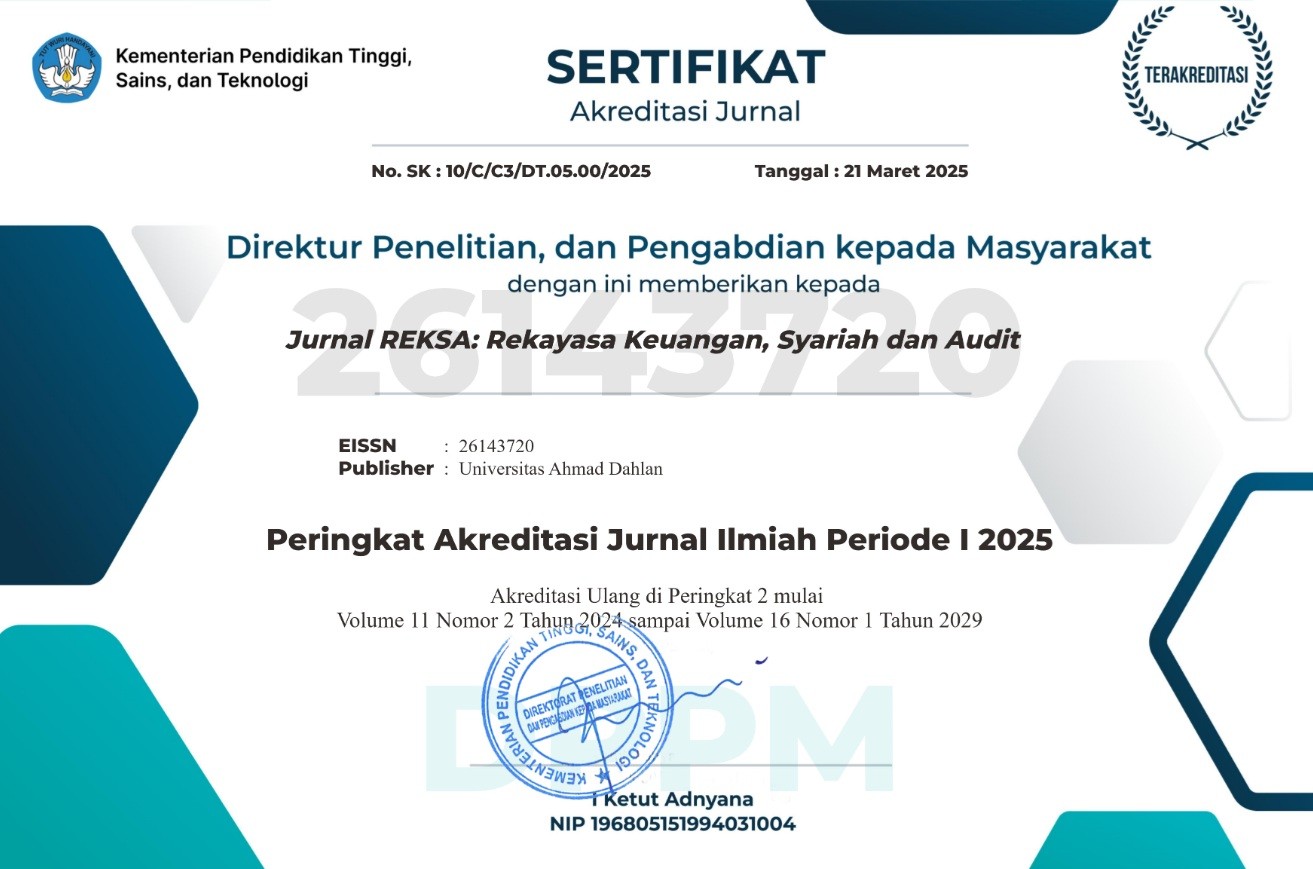PENGARUH KECERDASAN EMOSIONAL, KECERDASAN SPIRITUAL, PERILAKU BELAJAR, DAN LINGKUNGAN BELAJAR TERHADAP TINGKAT PEMAHAMAN AKUNTANSI DENGAN PERKEMBANGAN TEKNOLOGI SEBAGAI VARIABEL PEMODERASI
DOI:
https://doi.org/10.12928/j.reksa.v2i2.21Keywords:
emotional intelligence, spiritual intelligence, behavioral learning, learning environment, the level of understanding of accounting, and technology developmentAbstract
The level of student understanding of accounting is not only measured by the intelligence but also the emotional intelligence can be measured, spiritual intelligence, learning behavior, and the learning environment in this study is an independent variable. While the dependent variable is the level of understanding of accounting. Added moderating variable is the development of technology. The study sample of 180 accounting students UGM, STIE YKPN, UPN Veteran Yogyakarta, and UAD taken using purposive sampling technique. Data analysis techniques used in this study is a linear regression, moderated regression analysis, and the Chow test. Result of research indicate that emotional intelligence, spiritual intelligence, behavioral learning, and the learning environment does not affect the level of understanding of accounting, which means that the hypothesis first, second, third, and fourth is unacceptable. In addition, the MRA test results and test results show that the Chow technological developments do not strengthen the relationship between emotional intelligence, spiritual intelligence, behavioral learning, and the learning environment to the level of understanding of accounting, which means that the hypothesis fifth, sixth, seventh, and eighth is not acceptable.Downloads
Published
2018-06-09
How to Cite
Utami, M. T., & Sumaryanto, S. (2018). PENGARUH KECERDASAN EMOSIONAL, KECERDASAN SPIRITUAL, PERILAKU BELAJAR, DAN LINGKUNGAN BELAJAR TERHADAP TINGKAT PEMAHAMAN AKUNTANSI DENGAN PERKEMBANGAN TEKNOLOGI SEBAGAI VARIABEL PEMODERASI. Jurnal REKSA: Rekayasa Keuangan, Syariah Dan Audit, 2(2), 139–157. https://doi.org/10.12928/j.reksa.v2i2.21
Issue
Section
Articles
License
Authors who publish with JURNAL REKSA agree to the following terms:
- Authors retain copyright and grant the JURNAL REKSA right of first publication with the work simultaneously licensed under a Creative Commons Attribution License (CC BY-SA 4.0) that allows others to share (copy and redistribute the material in any medium or format) and adapt (remix, transform, and build upon the material) the work for any purpose, even commercially with an acknowledgment of the work's authorship and initial publication in JURNAL REKSA.
- Authors are able to enter into separate, additional contractual arrangements for the non-exclusive distribution of the journal's published version of the work (e.g., post it to an institutional repository or publish it in a book), with an acknowledgment of its initial publication in JURNAL REKSA.
- Authors are permitted and encouraged to post their work online (e.g., in institutional repositories or on their website) prior to and during the submission process, as it can lead to productive exchanges, as well as earlier and greater citation of published work (See The Effect of Open Access).




